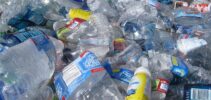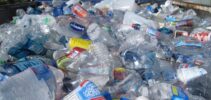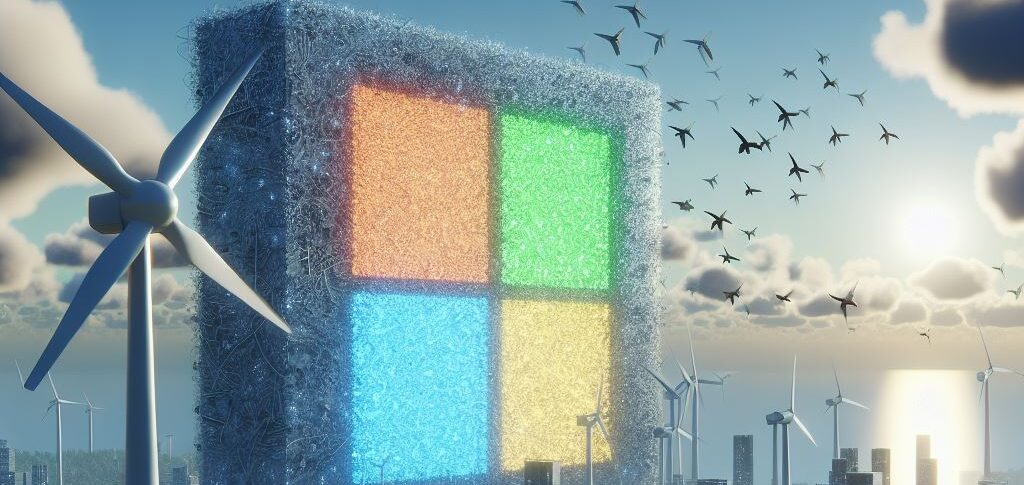The meeting brings together countries with divergent interests, NGOs and also companies in the plastic sector, to the chagrin of environmental activists, who will also be present at the debates.
ADVERTISING
The kickoff was given this Monday morning (29) by the president of the commission, Peruvian Gustavo Meza-Cuadra Velásquez.
“The world is watching us,” he said. “The challenge is enormous, we all know that here, but it is not insurmountable,” he said.
Just over a year ago, in Nairobi (Kenya), an agreement in principle was reached to end plastic pollution in the world, with the ambition of developing, by the end of 2024, a legally binding treaty under the auspices of the United Nations.
ADVERTISING
A group of ministers and representatives from around 60 countries met in Paris on Saturday to give momentum to the negotiations.
Negotiations are underway in Paris for a legally binding agreement to #BeatPlasticPollution, find out about the #PlasticsTreaty process.
- UN Environment Program (@UNEP) May 29, 2023
"Time bomb"
French President Emmanuel Macron called in a video shown at the opening of the meeting this Monday to “end a globalized and unsustainable model” of plastic production and consumption, warning of a “time bomb”.
The challenges are great, as annual production has more than doubled in 20 years, reaching 460 million tons (Mt). It could still triple by 2060 if nothing is done.
ADVERTISING
However, two-thirds of this global production has a short shelf life and is discarded after just one or a few uses; 22% are abandoned (dumps, open-air incineration or discharge into nature) and less than 10% are recycled.
“The main objective must be to reduce the production of new plastics and ban as soon as possible the most polluting products – such as disposable plastics – and those most dangerous to health”, highlighted Macron.
“There is a consensus on what is at stake and there is a will to act,” Diane Beaumenay-Joannet, from the NGO Surfrider Foundation, told AFP. She said she was “very optimistic that we are moving forward on a draft treaty,” but believes that “on the precise content of the obligations, it will be complicated, particularly in relation to the reduction in production.”
ADVERTISING
Ellipsis
In favor of the reduction, a coalition of countries, led by Rwanda and Norway, includes, among others, the European Union (EU), Canada and several Latin American countries, such as Mexico, Peru and Chile. Its goal is to end plastic pollution by 2040.
But there is resistance from other countries, which place greater emphasis on recycling or better waste management, such as China, the United States, Saudi Arabia and in general the OPEC countries, which seek to protect their petrochemical industry.
Plastic, derived from petroleum, is a ubiquitous material in everyday life. It is in packaging, clothing fibers, construction materials and medical instruments.
ADVERTISING
The waste ends up in the oceans, in the polar ice caps, in the stomachs of birds and even on the tops of mountains. Microplastics have also been detected in blood, breast milk and placentas.
“Developed countries are the biggest consumers and the ones that pollute the most. They produce in other countries and send their waste back to other countries”, points out Diane Beaumenay-Joannet.
Another issue in the problem of plastic pollution is its role in global warming: in 2019 the problem generated 1,8 billion tons of greenhouse gases, that is, 3,4% of global emissions, a number that could double by 2060, according to the Organization for Economic Co-operation and Development (OECD).
Read also
* The text of this article was partially generated by artificial intelligence tools, state-of-the-art language models that assist in the preparation, review, translation and summarization of texts. Text entries were created by the Curto News and responses from AI tools were used to improve the final content.
It is important to highlight that AI tools are just tools, and the final responsibility for the published content lies with the Curto News. By using these tools responsibly and ethically, our objective is to expand communication possibilities and democratize access to quality information. 🤖





